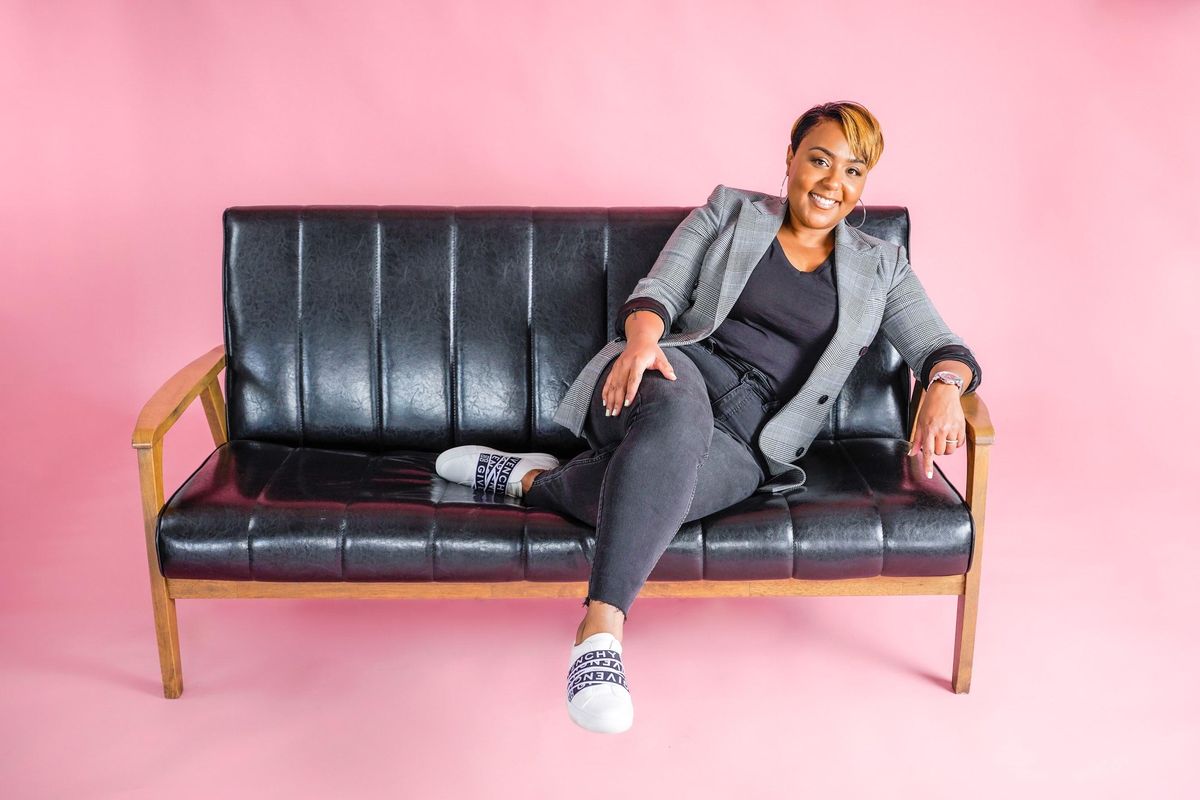As told to Alex Fulton
My eating disorder started when I was 12. I was sitting in the kitchen eating some chips when my father came in and looked at me. "You're getting chubby," he said. Then he turned to my mom. "You need to watch her diet. I don't want a fat daughter."
From that moment on, I became obsessed with my body. I started restricting my food intake, which is a form of disordered eating. By the time I got to high school, I was also exercising obsessively.
I grew up in a house of dieters. Both my parents were constantly trying to lose weight. I remember hearing my grandmother and aunts comment on certain parts of my body when I was a little girl. Very early on, I got the message that slim was the way to be, and anything else was unacceptable.
I kept my eating habits a secret. It wasn't the kind of thing we talked about in my community. I just started telling people I wasn't hungry. Nobody asked questions or expressed concern, so I continued restricting. This went on for more than 20 years.
When I went to my first therapist at 33, she noticed that I was drawn to body modifications like plastic surgery and brought up disordered eating. So I spoke with my regular doctor, who assumed I must have bulimia because I wasn't underweight. Then I talked to my gynecologist, who jumped to the same conclusion. I was Black and I was a "normal" size, so I couldn't possibly have anorexia, right?
It wasn't until two years ago, when I saw a clinician who specializes in eating disorders, that I received an accurate diagnosis of atypical anorexia, which is when someone exhibits symptoms of anorexia but has a normal or above-normal weight. I was 38 years old.
Sadly, my experience is not unusual. People of color are significantly less likely to receive help for food issues in the United States, despite similar rates of eating disorders among non-Hispanic Whites, Hispanics, African-Americans and Asians.
When I finally did get a diagnosis, it was hard to process. Restricting food was routine for me. It was just what I did to keep my weight in check. It never occurred to me that I had a problem.
I had to accept my eating disorder as a mental illness on top of my previously diagnosed depression and anxiety. I couldn't just flip a switch and start eating again. I needed to rethink my relationship with food — and my body.
Not only had I been depriving myself of food, but I hadn't enjoyed a single bite of it in more than two decades. Ever since that day in the kitchen, I'd been calculating calories in and out, worrying about how I was going to work off meals as I was eating them. It was like I was on a hamster wheel in my head.
I started seeing a counselor who focuses on eating disorders, as well as a nutritionist who works with people whose eating is disordered. I had to learn how to eat normally. I didn't know how to do it without restricting myself.
Two years into my recovery, I'm beginning to understand how to build healthy meals that nourish my body rather than deprive it. It has been freeing to finally step off the hamster wheel, but it has taken a while for me to feel comfortable walking in that freedom. I'm still working on it.
How many young girls are getting the message that they need to look a certain way to be considered beautiful? How many women are starving themselves in an attempt to attain the unattainable? You don't need a diagnosis of anorexia, bulimia or orthorexia (an obsession with healthy eating) to have a poor relationship with food.
Because you don't know what you don't know, I've been really intentional about bringing awareness to disordered eating. The more we have these conversations, the more we can shift our collective mindset when it comes to food and body image.
When I was first diagnosed with depression and anxiety four years ago, I started a blog to help me heal and provide others with a space to be seen and heard. I didn't have a community around me that understood what I was going through, so I created one.
I named my blog Real Girls F.A.R.T. because "fart" is such a taboo word for girls, just like mental illness is often a taboo topic. I wanted to turn this taboo into something positive, so it stands for fearless, authentic, rescuer and trailblazer.
I believe we all have these four things in us. We just have to find our voice in order to embody them. These words represent my journey, what I went through to become the woman I am today.
My blog led to two books and other advocacy work. Now I'm fundraising to start a nonprofit called Real Girls Foundation that is dedicated to teaching young women in underserved communities about body image.
I want young girls who feel the way I did at age 12 to know they're not alone. I want them to understand that every body is a good body, and that each of them is a work of art.
Resources:
National Eating Disorders Association
American Academy of Child and Adolescent Psychiatry
National Alliance on Mental Illness
- Suffering in Silence: Middle-Aged Women and Eating Disorders ›
- Menopause and Eating Disorders - HealthyWomen ›
- Eating Disorders - HealthyWomen ›
- I Didn't Know I Had an Eating Disorder - HealthyWomen ›
- I Struggled With Obesity. Then I Lost the Weight … and Nearly Died From Anorexia and Bulimia. - HealthyWomen ›
- I Needed Help to Recover from My Eating Disorder - HealthyWomen ›
- Thanksgiving Will Always Be Difficult For Me. - HealthyWomen ›







